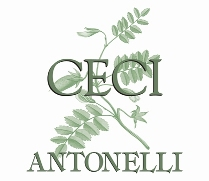With the farm’s conversion to organic farming, chickpeas have also been introduced; these legumes are an excellent source of protein and nutrition for the human diet. The chickpea is a crop that is very well suited to organic farming because it does not need nitrogen fertilizer and at the farm it is grown in agronomic crop rotation with emmer wheat.
They have been cultivated from time immemorial in the entire Mediterranean basin. The Latin name Cicer arietinum refers to the similarity of the seeds with the profile of the head of a ram. Chickpeas can be used in the kitchen in the preparation of appetisers like toasted canapes, salads with celery, rosemary, pepper and extra virgin olive oil, first courses such as pasta, soups or savoury flatbread made with chickpea flour like the classic Ligurian “farinata”. They are rich in phosphorus and potassium and contain moderate amounts of linoleic acid, an essential acid, good quantities of mineral salts, fibre and vitamins A and C, as well as saponins which help to eliminate cholesterol from the body.
Our chickpeas

